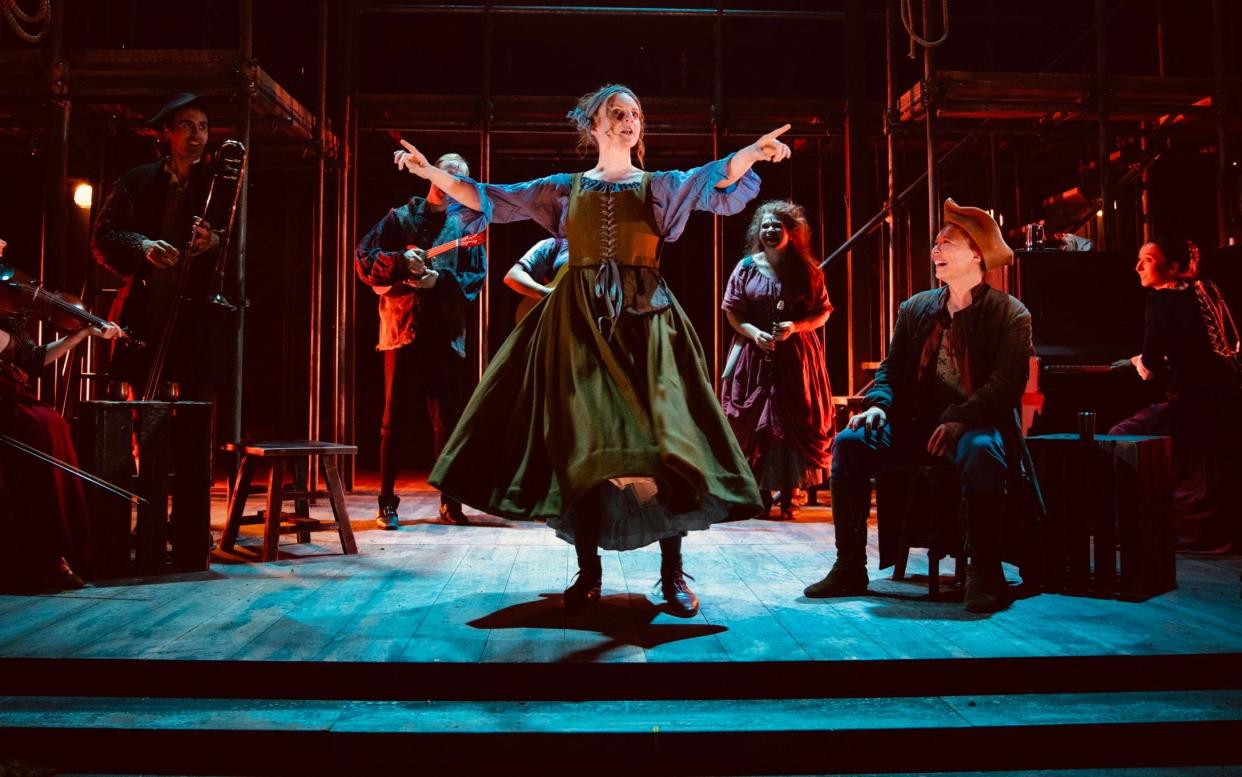Relive the 18th-century British ‘gin craze’ with this bawdy riot of a musical

This is just the theatrical tipple the doctor ordered after months of dour lockdowns and social isolation. Gin Craze! – the first musical by the playwright April de Angelis, joining forces with composer Lucy Rivers – transports us to the early 18th century, a time when London’s streets were boisterous with the sound of gin-glugging.
Swathes of the adult population were hooked on what was originally called “Genever” or “Jenever” – a distilled malt, sweetened with juniper, thought to have medicinal properties. Britain was drowning in the stuff: it was estimated that by 1733 the average person was drinking 14 gallons of gin a year. With its famous portrait of a sprawling woman, babe tumbling from her arms, William Hogarth’s 1751 print ‘Gin Lane’ encapsulates the social downsides, against which the authorities eventually took action. But it also catches something we can look on with a smidge of envy: a disregard for conventions, a mutinous bliss.
Both the suffering and sweetness of the “gin craze” are bundled into this soulful, folksy show about life and love amid the defiant ranks of gin-peddlers and tarts. Gin Craze! combines melancholy ballads with jubilant jigs, all performed by eight actor-musicians. Their carefree vivacity, staggering and dancing around a two-tier scaffold set, honours the period tumult while largely eschewing latter-day moralising. The evening does serve up its male characterisations with a flavour of feminist revulsion – but patriarchal behaviour may really have been so awful that those men seem like walking caricatures now.
It’s the women who rule the dramatic roost here. The show begins with a scene that’s based, as much of this is, on fact. We meet Mary (Aruhan Galieva), the former servant to and now wife of the novelist Henry Fielding (Alex Mugnaioni). In real life, the latter campaigned against the scourge of gin addiction in his capacity as magistrate and founder of the proto-police force The Bow Street Runners. Little does his fictional incarnation know, however, that – and at this point De Angelis’s imagination takes wing – Mary was once the kind of outcast that men of Fielding’s class crossed the street to avoid.
We go back in time to watch as the heroine, “ruined” by a clergyman, is booted from domestic service, the hypocritical cleric urging her as she departs to “try to remember saying ‘no’ next time”. She naively puts her baby into another’s care, before falling in (and in love) with Paksie Vernon’s Lydia. This cool customer, herself nursing childhood-abandonment trauma, reinvents herself as “Jack”, a laddish, law-evading gin-trepreneur. Pressures mount with stricter licensing laws and the proliferation of informers, and Jack lands a fatal blow to avenge the infanticide of Mary’s child, winding up in the dock before Fielding.
In the meantime, Lydia’s act of cross-dressing affords some droll amorous confusion, and yields a hilarious number called ‘The Problem of (Not) Having a Cock’, a measure of the bawdy humour. Most of the cast have their chance to shine – especially Debbie Chazen as a wonderfully shouty Queen Caroline, and Rachel Winters as Fielding’s sister Sarah, garrulity incarnate. Director Michael Oakley could afford to let in more cheer, lighting-wise, but writing-wise the piece is crafted with care, steeped in research and founded on admiration for a vanished world of voiceless women. Bravo, and chin-chin!
Until July 31. Tickets: 01604 624811; royalandderngate.co.uk


